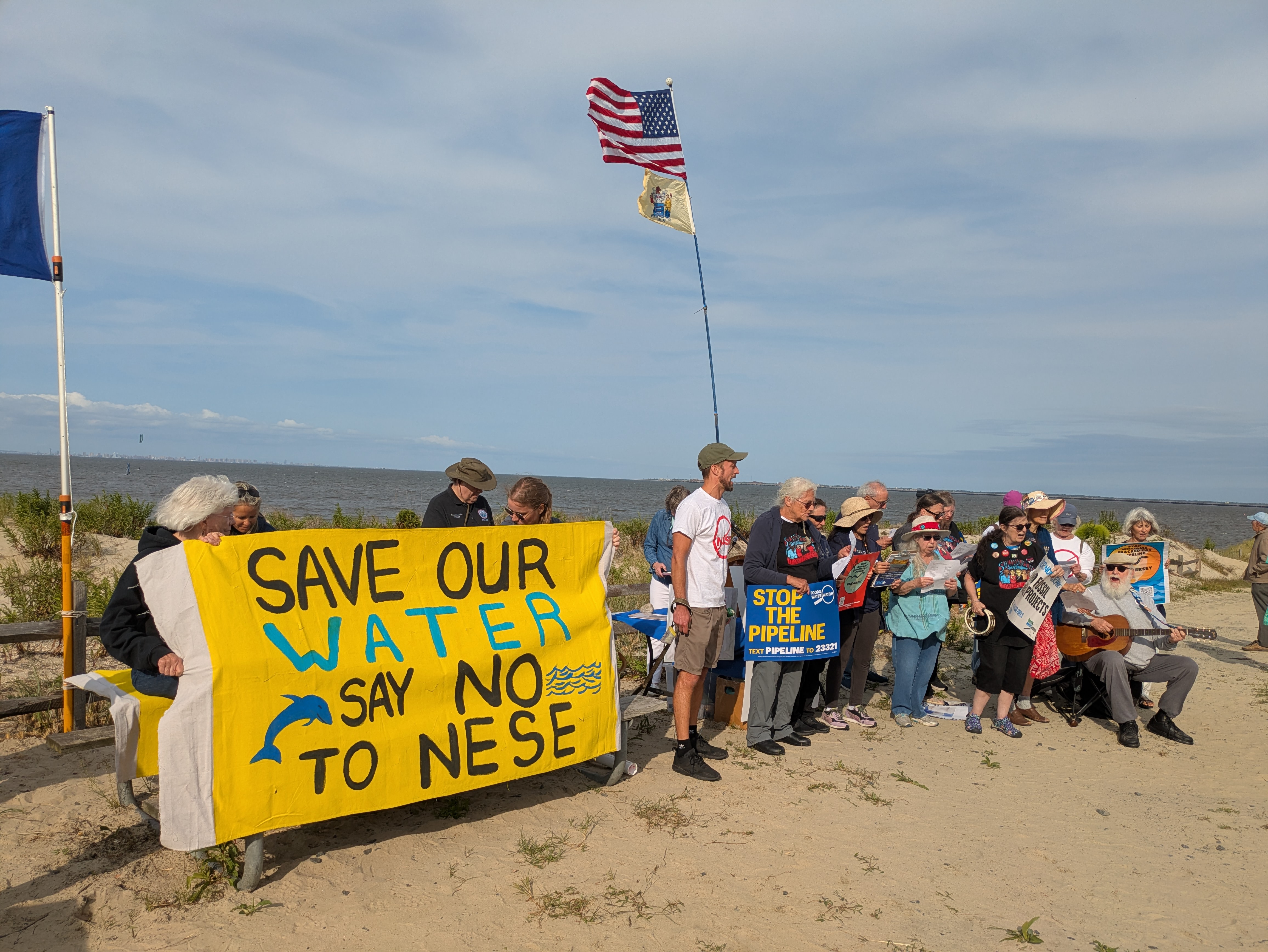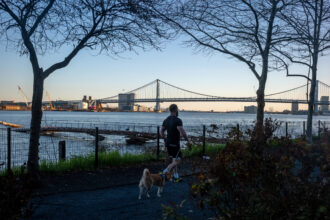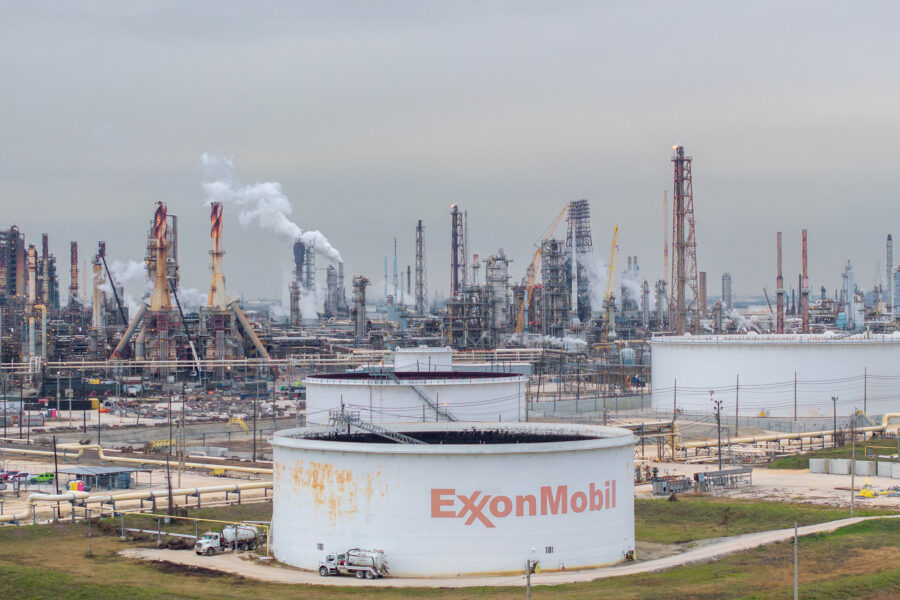Williams Cos. has resubmitted permit applications for its Northeast Supply Enhancement (NESE) pipeline project in New Jersey, igniting new opposition from environmental groups and local officials in Somerset County’s Franklin Township, where a new compressor station would be built.
The New Jersey Department of Environmental Protection has no statutory deadline for issuing the permits needed to proceed with the pipeline project, which would extend Williams’ existing Transcontinental natural gas pipeline system from Lancaster County, Pennsylvania, through New Jersey and beneath the Raritan and Lower New York Bays to Queens in New York City. But a recent public comment period closed Sept. 25.
Williams’ move to reapply for approval from federal and state regulators came after the Trump administration expedited environmental reviews for natural gas pipelines and other energy infrastructure.
Williams, a natural gas and natural gas product company based in Oklahoma, owns the 10,000-mile transcontinental system through a subsidiary, the Transcontinental Gas Pipe Line Company LLC, known as Transco. The pipeline runs from Texas to New York City and transports 15 percent of the natural gas consumed in the United States.
The pipeline system was first placed into service in 1949 and has experienced multiple expansions over the past 70 years, according to the company’s website. It now has a capacity of 19.6 million dekatherms per day, enough to heat millions of homes. An average U.S. three-bedroom house may use anywhere from 5 to 15 dekatherms of natural gas per month.
The proposed NESE pipeline would increase the system’s capacity by 400,000 dekatherms per day. Texas is the leading natural gas producer, followed by Pennsylvania and Louisiana. Neither New Jersey or New York permits the natural gas extraction technique known as hydraulic fracturing, or fracking.
The Delaware River Basin Commission banned fracking in the Delaware River Basin in February 2021. Around half of the natural gas that enters New Jersey leaves is unused and flows to other states, according to the U.S. Energy Information Administration.
The proposed Northeast Supply Enhancement pipeline has three main components: the 3.4-mile Madison Loop in Middlesex County, which runs adjacent to an existing Transco right of way and is designed to increase delivery capacity in New Jersey; the 23.5-mile Raritan Bay Loop in Middlesex that goes under Raritan and Lower New York Bays to Queens, and a new 32,000 horsepower compressor station in Franklin Township would assist with accelerating flow through the existing pipeline.
However, these construction plans are not new; they date back to 2016. While the company dusted off its original blueprints, fossil fuel activists began organizing protests and public awareness events again.
“I certainly know that issues like this have a way of evolving and sometimes coming back from the dead,” said Charlie Kratovil, the central Jersey organizer for the advocacy organization Food and Water Watch. “So much has changed since that first meeting where I learned about this.”
When Kratovil first heard of the NESE project, he said he was reporting on the government regulatory process and environmental opposition. Now working full-time with Food and Water Watch, he’s joined the campaign against the pipeline’s return.
“It’s just unfortunate that we have to defeat this once again, because there’s a lot of things we could be working on if we weren’t sort of forced to fight this battle once again,” Kratovil said.
Initial efforts to launch the pipeline project started in May 2016, but after being denied necessary permits from both New Jersey and New York throughout 2019 and 2020, the plan lost steam. In May 2024, Transco notified the Federal Energy Regulatory Commission (FERC) that it would not seek an extension for the project and let the previous extension that the commission approved earlier in the month expire.
Transco then, about a year later, petitioned FERC for an “Expedited Reissuance of Certification Authority” for the NESE pipeline project in late May.
The company has argued that the project is necessary to meet growing demand in New York City and Long Island, describing it as critical for energy resilience and regional economic growth. Environmentalists say the project would endanger renewable energy goals, threaten fragile coastal ecosystems and pollute the air and water.
“I think that we have the technology to transition from fossil fuels right now, but unfortunately, we don’t have the political support for that, and that’s the main thing that’s holding us back and perpetuating this crisis,” Kratovil said.
He and other opponents say the project has been “fast-tracked” by the Trump administration, due to the federal suspension of offshore wind projects and FERC’s claim that New York is facing an energy reliability crisis.
The New Jersey Department of Environmental Protection has created a webpage on the NESE pipeline that describes the temporary and permanent disturbances each construction project would bring to wetlands, vegetation, transition areas and state open waters.
On Sept. 10, the NJDEP hosted a virtual meeting on Microsoft Teams regarding Transco’s individual permit applications for freshwater wetlands, flood hazard areas, waterfront development and coastal wetlands.
Multiple Franklin Township council members spoke in opposition to the compressor station that would be built near their homes. The township has been passing resolutions opposing construction since 2016, when the project was first proposed.
“We’re not talking about some distant possibility. We’re talking about exhaust pumped into our neighborhoods every single day,” Franklin Township Mayor Phillip Kramer said.
Kramer said he sees this issue through “all three lenses” of his professional background: a degree in aerospace engineering, his service as a B-52 pilot, and now as a practicing neurologist. He compared the power of the compressor to that of a B-52’s near takeoff speed, noting the “power” and “sheer fuel it consumes.”
Franklin Township is defined as an overburdened community under New Jersey’s Environmental Justice Law. Overburdened communities are those that have one or more of three attributes: at least 35 percent low-income households, at least 40 percent of the residents who identify as a minority or members of a state-recognized tribal community, or at least 40 percent of households that have limited English proficiency.
The compressor would also be built near the Trap Rock Quarry in Franklin Township, which uses explosives to break rocks into pieces. Multiple speakers raised concerns about the compressor being built so close to the quarry.
“Let’s be clear, this pipeline is not a progress, it’s a regression. It’s a 20th-century solution to a 21st-century problem,” said Sivaraman Anbarasan, a Franklin Township council member at large. “We are not anti-development, but we are pro-sustainability, pro-health and pro-future.”
Ed Potosnak, a Ward 1 council member in Franklin Township, said that Williams Cos. contributed thousands of dollars to President Donald Trump’s campaign and was receiving “payback” now that the project is being considered again.
While the three Franklin Township council members were able to speak, others who signed up to comment were never given the chance. As an agency employee announced the meeting was ending and that the public could submit comments to the NJDEP until the late September deadline, multiple attendees began protesting, but they were quickly muted online.
“Someone needs to care,” said Linda Powell, a Franklin Township resident who is involved in multiple climate action groups, before her volume was muted online even as her mouth kept moving in her virtual box.
In a letter to NJDEP Commissioner Shawn M. LaTourette, multiple climate action groups wrote about the “disrespect” that the NJDEP has shown to residents.
The letter criticized its handling of the virtual meeting on a platform that the groups described as unfamiliar and difficult to navigate. They faulted the department for ending the public comment session before numerous attendees were allowed to speak.
“I registered two weeks ago. I am furious. They didn’t even let me on the call for the 1st hour, as I had to wait for them to let me into the call after 7pm,” the letter quoted one attendee.
The climate action groups urged the NJDEP to schedule “no less” than three in-person meetings in Somerset, Middlesex and Monmouth Counties, where the pipeline project would be based, and to offer a virtual option via Zoom.
While no decision has been made on any possible in-person meetings or the NESE project, the NJDEP has now scheduled another virtual hearing for the pipeline project’s air permits on Nov. 13 from 5:30 p.m. to 9:30 p.m. The NJDEP’s Division of Land Resource Protection must review the information and testimony given at the hearing before deciding on Transco’s permit applications.
Kratovil said it seemed obvious why NJDEP was not interested in further in-person hearings. “If you read between the lines, there would be a massive organizing opportunity, there would be a massive turnout, and people would bring their signs and loud voices and make those voices heard,” he said, adding that the department had found it easy to mute people during the recent virtual hearing.
The NJDEP declined to comment. Williams Cos. did not respond to requests for comment.
This story has been updated to include an additional hearing scheduled by NJDEP on Nov. 13.
About This Story
Perhaps you noticed: This story, like all the news we publish, is free to read. That’s because Inside Climate News is a 501c3 nonprofit organization. We do not charge a subscription fee, lock our news behind a paywall, or clutter our website with ads. We make our news on climate and the environment freely available to you and anyone who wants it.
That’s not all. We also share our news for free with scores of other media organizations around the country. Many of them can’t afford to do environmental journalism of their own. We’ve built bureaus from coast to coast to report local stories, collaborate with local newsrooms and co-publish articles so that this vital work is shared as widely as possible.
Two of us launched ICN in 2007. Six years later we earned a Pulitzer Prize for National Reporting, and now we run the oldest and largest dedicated climate newsroom in the nation. We tell the story in all its complexity. We hold polluters accountable. We expose environmental injustice. We debunk misinformation. We scrutinize solutions and inspire action.
Donations from readers like you fund every aspect of what we do. If you don’t already, will you support our ongoing work, our reporting on the biggest crisis facing our planet, and help us reach even more readers in more places?
Please take a moment to make a tax-deductible donation. Every one of them makes a difference.
Thank you,













